When, where, and how humankind acquired control of fire are all still unknowns.

Yet, fantastic stories, filled with supernatural beings, heroes, creators, and monsters, as well as “talking and thinking” birds, beasts, and insects, were common to ancient tribes and civilizations worldwide as they tried to explain the phenomenon. These tales arose everywhere, as if by a type of spontaneous combustion, and spread through Africa, Asia, Australia, Europe, and North and South America. To explain fire’s origin, people looked to forces of nature, such as lightning, thunder, and volcanoes, and celestial bodies such as the sun, the moon, and the stars. Whether it was gifted to humanity by individual trailblazers, tricksters and thieves, gods and goddesses, or discovered by accident or observation, the story of fire being brought to humans by Prometheus (see pages 2–3) was only one among thousands of different tales told.
“Quest for fire” myths occur in three stages that sometimes overlap. In the beginning, humans knew nothing of fire. They huddled in darkness, shivered with cold, and ate food that was barely heated by the sun or warmed in their armpits. The desire for a source of light and heat sparked tales of discovery that attributed their origins to nature, royalty, and heroes. Even though the ancients were believed to have known about fire, they did not have it. When they saw smoke on a mountaintop or on the horizon, they wanted its secret. (Note that, in very ancient times, the horizon seemed, to many peoples, to mark the end of the world.) This quest opened the door for tales of a crafty trickster who plotted to steal fire to benefit all humans. The widely held belief that humans had let fire die led cultures to develop myths about the search for ways to rekindle it and keep it burning forever.
TWO TALES
Diese Geschichte stammt aus der July/August 2017-Ausgabe von Dig Into History Magazine for Kids and Teens.
Starten Sie Ihre 7-tägige kostenlose Testversion von Magzter GOLD, um auf Tausende kuratierte Premium-Storys sowie über 8.000 Zeitschriften und Zeitungen zuzugreifen.
Bereits Abonnent ? Anmelden
Diese Geschichte stammt aus der July/August 2017-Ausgabe von Dig Into History Magazine for Kids and Teens.
Starten Sie Ihre 7-tägige kostenlose Testversion von Magzter GOLD, um auf Tausende kuratierte Premium-Storys sowie über 8.000 Zeitschriften und Zeitungen zuzugreifen.
Bereits Abonnent? Anmelden
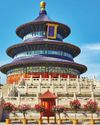
Worshiping Heaven
For almost 500 years, emperors of the Ming and Qing dynasties offered sacrifices and prayers at the Temple of Heaven in Beijing.
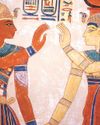
Peace Reigns
The news spread throughout Egypt—a new pharaoh, Ramses III, now sat on the throne.

Problems To The East
Ramses III, the second king of Egypt’s 20th Dynasty, is viewed as Egypt’s last truly great pharaoh.
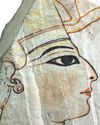
The Successors
Following the death of Ramses III, eight pharaohs, all named Ramses, ruled Egypt.
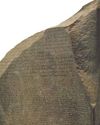
Stone Code
Hundreds of ships, led by the French general Napoleon Bonaparte, sailed from France in May 1798 on a secret mission.

Up & Away!
Eclipse observers often face unexpected difficulties, sometimes on their way to their chosen sites and sometimes at a site itself.

Edison's Eclipse Adventure
Thomas Edison (1847–1931) is the best-known inventor in American history.
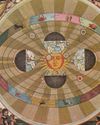
Digging Up Copernicus
The scientist “who made the Earth a planet” is how the Harvard-Smithsonian astronomer Owen Gingerich refers to Nicolaus Copernicus (1473–1543). Copernicus’ path breaking book, On the Revolutions of the Heavenly Spheres,challenged the centuries-old belief that the Earth stood stationary at the center of the cosmos.
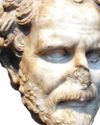
Demosthenes & Cicero
Even today, more than 2,000 years after they lived, Demosthenes and Cicero are still considered two of history’s most outstanding orators.
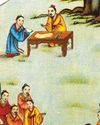
Confucius & Socrates
Some teachers are so inspirational that their influence lives on long after they die.